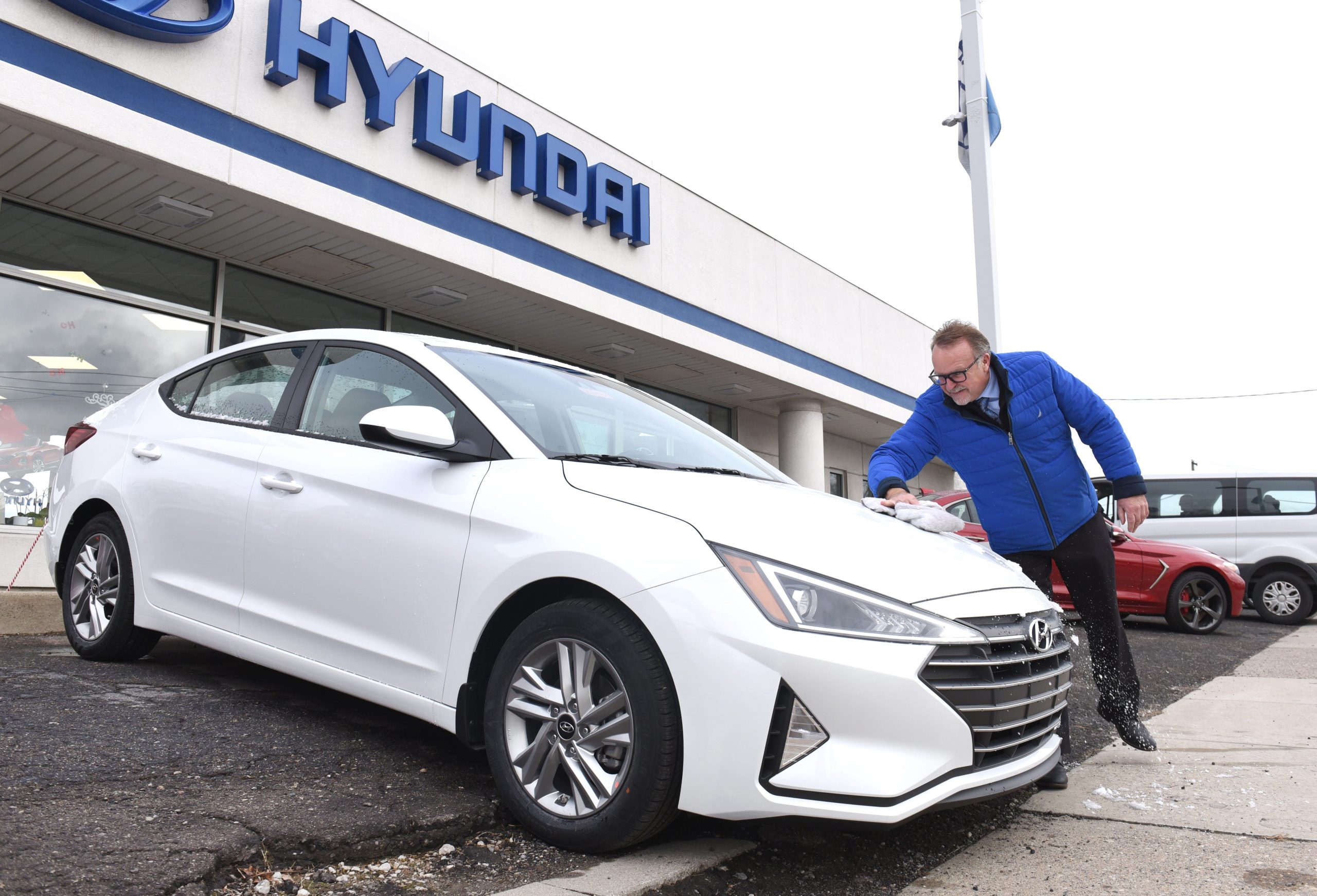Phoenix — A year after Ford and Chevrolet abandoned the compact-car segment to prioritize SUVs, buyers are abandoning those makes and shopping for cars made by Hyundai, Toyota and Honda.
Some 42% of Ford Focus and Chevy Cruze compact car owners have stayed in the compact car segment with a significant percentage buying competitors’ vehicles, according to an industry study by Edmunds that finds a deterioration of market share for the Detroit makes, and a decline in brand loyalty.
Hyundai, for example, saw sales of its Elantra compact car increase 102% this November over last year. The brand has also introduced an all-new 2020 mid-size Sonata that — like the all-new Toyota Camry and Honda Accord introduced in 2018 — the automaker hopes will capture buyers who still want sedans.
“There are 6.5 million car owners who do not have a successor sedan for them from their manufacturer. Forty-four percent of those say they want a sedan, so if you look at the raw numbers, there are still a lot of buyers out here,” Hyundai Vice President of Product Planning Mike O’Brien said at a media test of the new Sonata in Phoenix.
He noted that since Chrysler dropped its 200 sedan after the 2017 model year, there’s been an exodus of 20 nameplates from the sedan market.
The Edmunds study focused in particular on compact cars, which is the biggest car market – at 9.1% of share – in the United States today. The Ford Focus and Chevy Cruze have both left the segment in the last year as the Detroit makers concentrate on market demand for SUVs.
To be sure, a healthy share of former Focus and Cruze owners are acting as Ford and Chevy hoped: by moving into one of their SUVs. To date this year, 18% of Focus owners traded for a Ford SUV, while 21% of Cruze owners traded for a Chevy SUV.
But those buyers tend to have extra cash to spend as small SUVs can cost between $4,000-$8,000 more than a small car, reports Edmunds. As a result, those staying in the compact car segment are increasingly turning to the remaining foreign brands.
Dearborn is home to Ford’s headquarters. It also is home to Metro Detroit’s largest Hyundai dealer, LaFontaine Hyundai — a distinction driven, in part, by customers’ desire for a compact alternative to the discontinued Focus.
“We’ve seen a lot of interest in the Elantra since Ford left the compact market,” said Lafontaine sales manager Steve Hunsinger. The Elantra is prominently featured on the dealership’s website.
Determined to compete in the Detroit Three’s backyard, Hyundai matches Ford’s friends-and-family discount by offering Michigan buyers its own employees’ discount. Hunsinger says that, in addition to meeting demand for an affordable compact, the Elantra also benefits from Hyundai’s best-in-industry, 10-year/100,000-mile drivetrain warranty.
“Ford and GM made a strategic decision to prioritize profit at the expense of market share,” said Edmunds auto analyst Jessica Caldwell. “While this may set them up better in the long run so they have the cash they need to fund electrification and autonomy, there’s no question that decision is giving their competitors an edge now.”
Focus owners trading in their car to buy another Ford vehicle decreased from 40% in 2016, to 33% in 2019. The drop in brand loyalty has been steeper among Cruze owners — from 57% of owners trading in for a Chevy in 2016, to 45% this year.
Asian carmakers have benefited: the Honda Civic picked up 4% of former Focus buyers, the Toyota Corolla 3.5% and Hyundai Elantra 2.3%. Cruze trade-ins for Civics and Corollas nearly doubled from 2016 to 2019.
More: The racy Honda Civic Si just wants to have fun
More: Toyota Corolla Hatchback is wallflower no more
With the termination of the Ford Fusion and reported demise of the Chevy Malibu in a few years, foreign makers are hoping for the same playbook in midsize sedans.
That may be a tougher sell, given that midsize sedan sales have plummeted from 17% to 8% of market share.
But, says Hyundai’s O’Brien, “Not everyone hates their sedan. We see a healthy outlook for the future.” He points to the 6.6 million Honda Accords that are on the road, and the 7.2 million Toyota Camrys, 3.9 million Nissan Altimas and 2.2 million Hyundai Sonatas.
The Detroit Three have the profitable full-size pickup market virtually to themselves. But the midsize-pickup market can be seen as a test case for brands that abandon whole segments: Ford left the declining mid-size pickup market in 2012 only to return in 2019 with Toyota’s Tacoma dominant. Since re-entry, Ranger hasn’t been able to command the share it once did — but it boasts a 49% higher price that’s in line with the company’s profit-focused strategy.
Asian automakers are hardly sedan-dependent. Toyota, Honda and Nissan lead the compact SUV segment where most mid-size sedan buyers have fled. Hyundai is prolific in SUV markets as well, becoming one of the first automakers to introduce three entry-level models – the compact Tucson, subcompact-plus Kona and subcompact Venue coming next year.
Tucson sales are up 116% in November, the Kona up 106%.
But given the higher prices of SUVs over cars, Asian automakers see the compact-sedan market as crucial to attracting first-time, low-income buyers into their brands.
“The catch is, if Ford and GM don’t have affordable options for shoppers who are buying their first or second new car, it could be much harder to win them over later,” said Edmunds analyst Caldwell. “Catching consumers early and keeping them in the family has been a basic tenet of automotive brand strategy for decades. But it feels like we’re in the midst of a transformative time for the industry where automakers are being forced to rethink everything. Time will tell if it will end up the right call in the long run.”
Henry Payne is auto critic for The Detroit News. Find him at hpayne@detroitnews.com or Twitter @HenryEPayne.
Read or Share this story: https://www.detroitnews.com/story/business/autos/foreign/2019/12/10/ford-chevy-exit-sedan-market-asian-makers-gain-share/4352692002/
